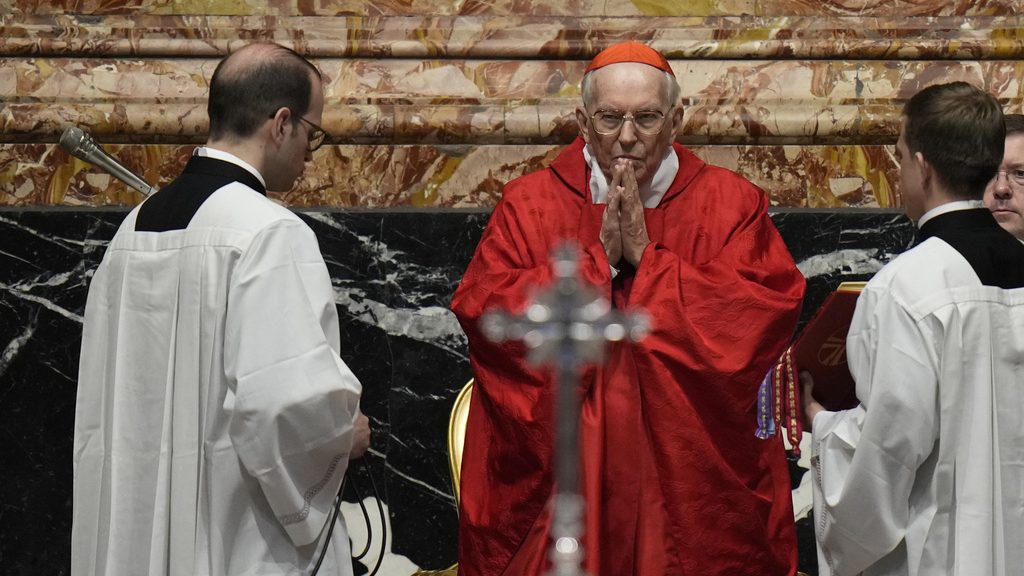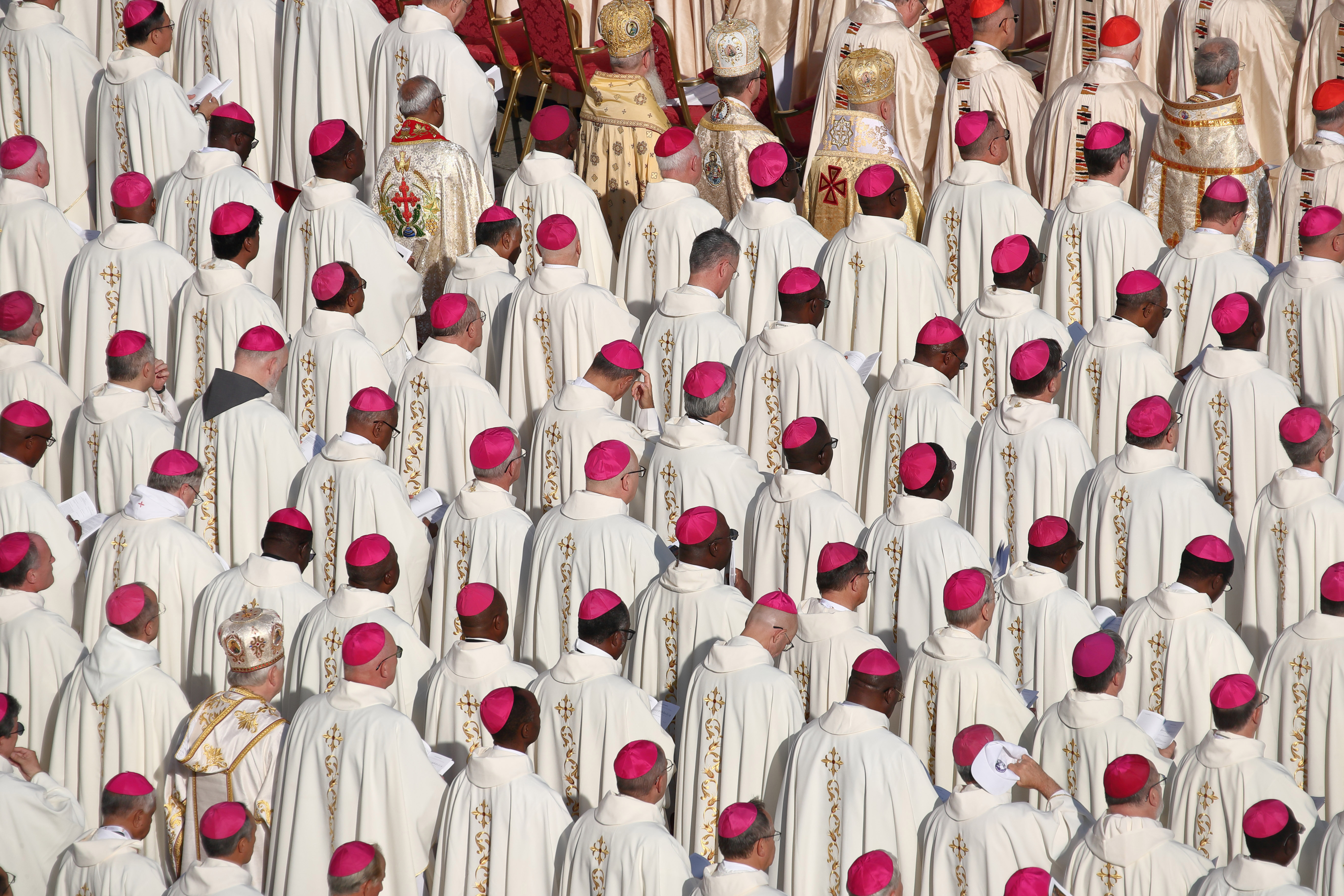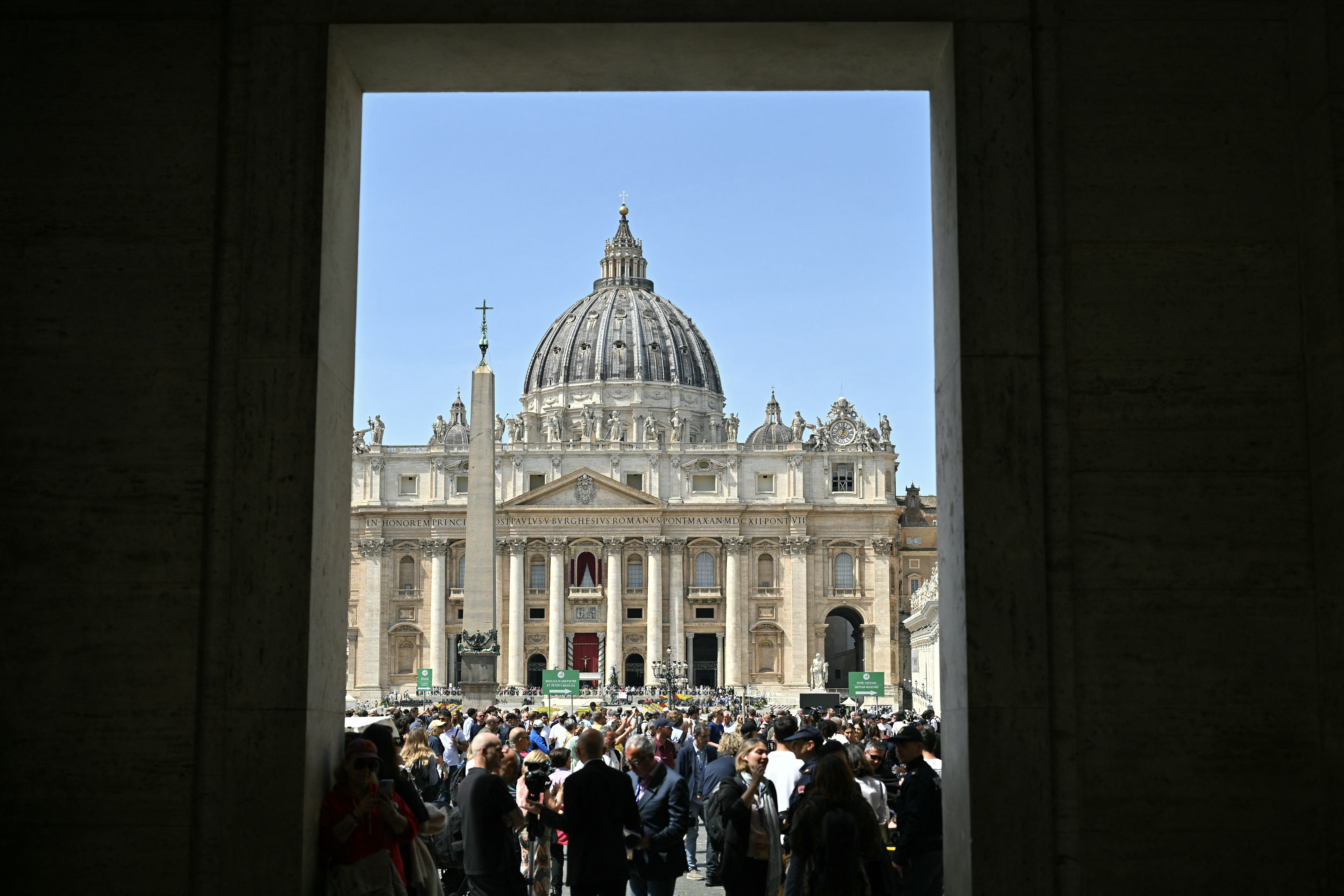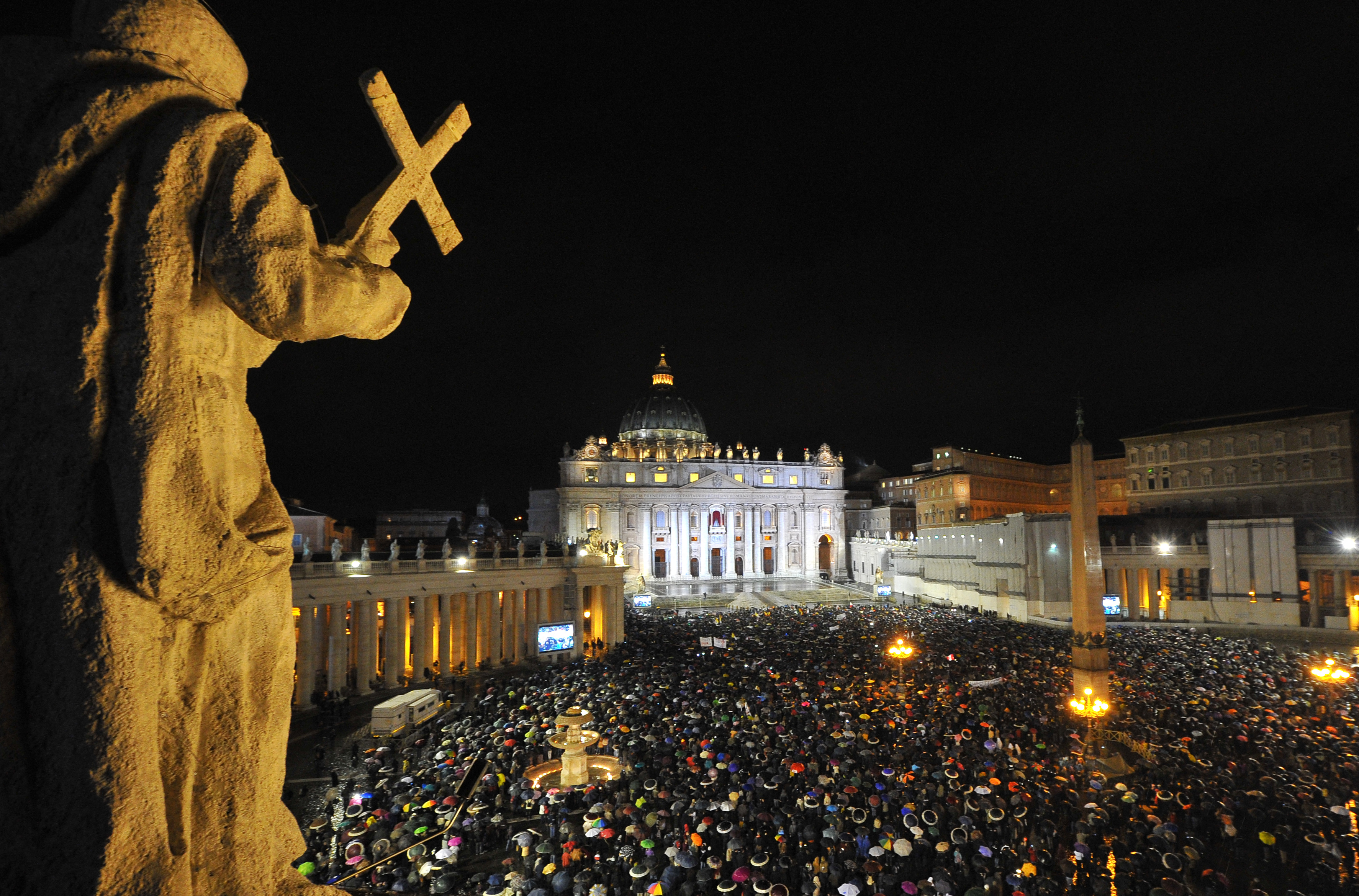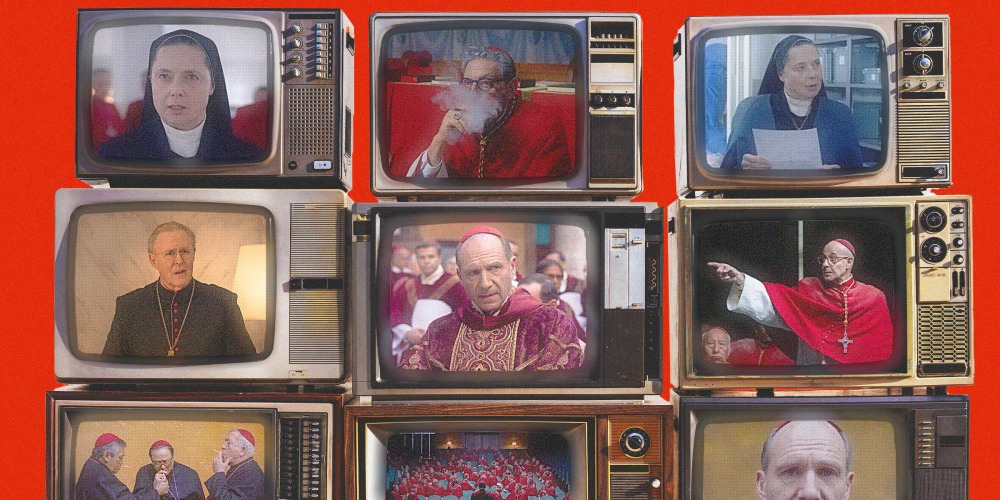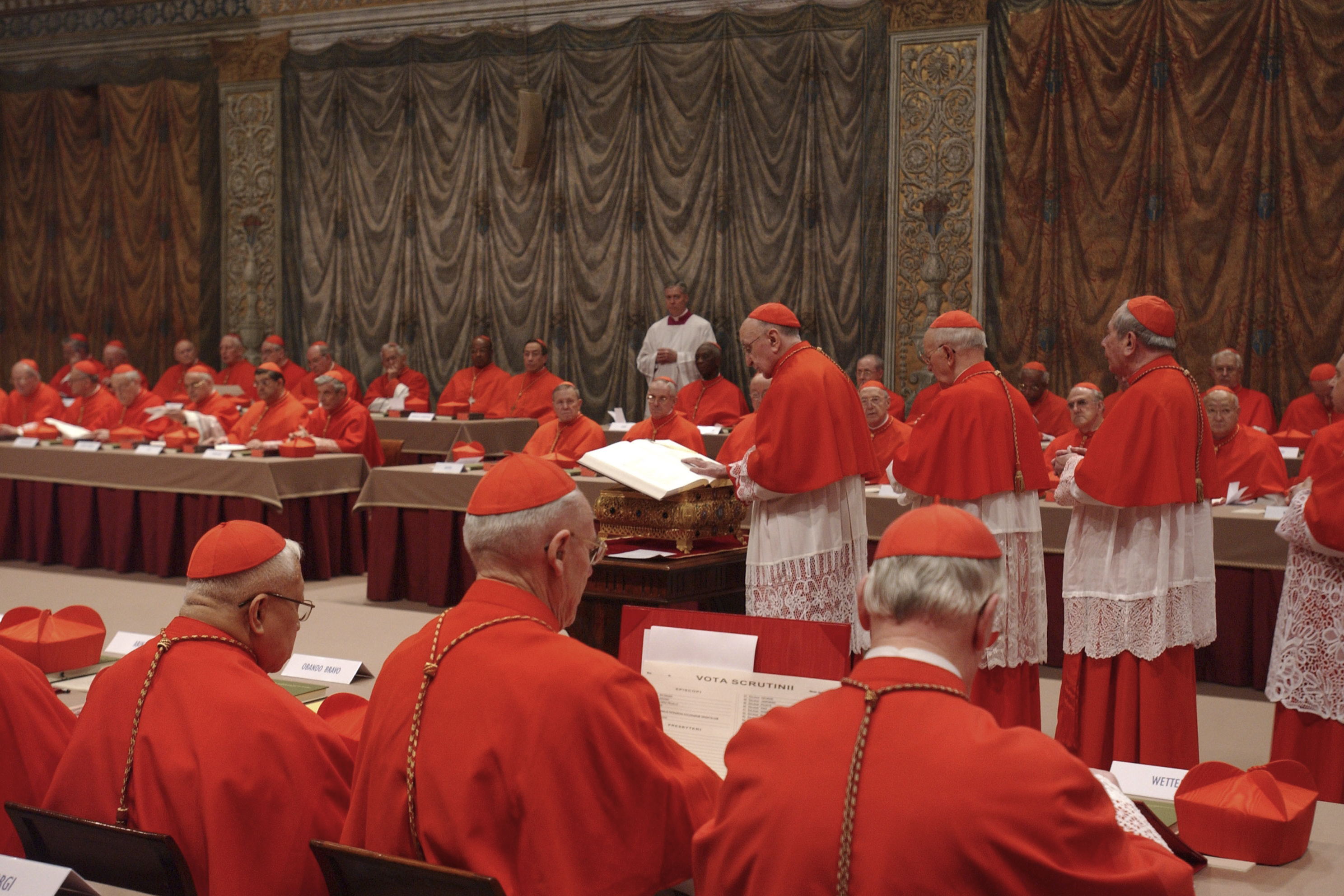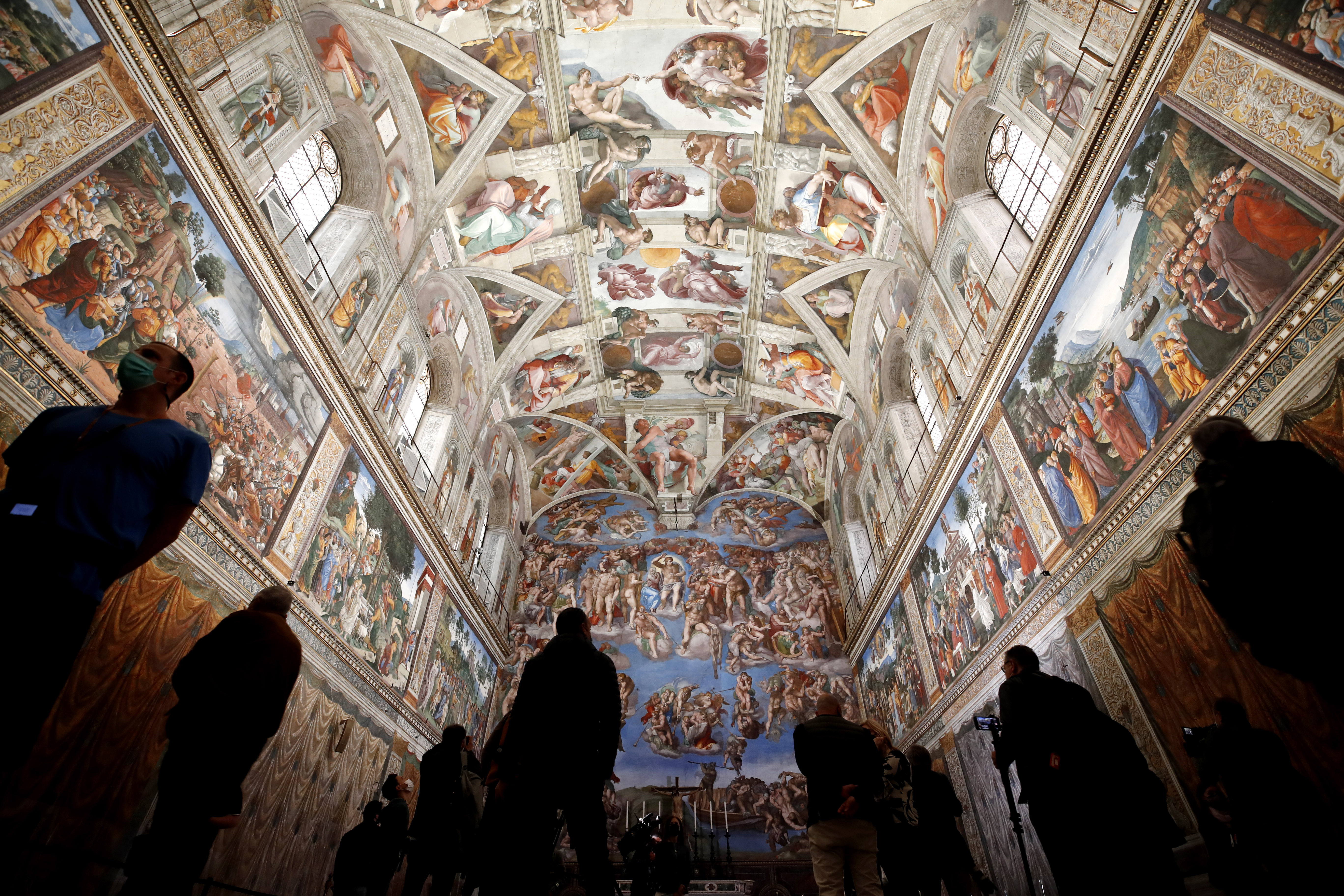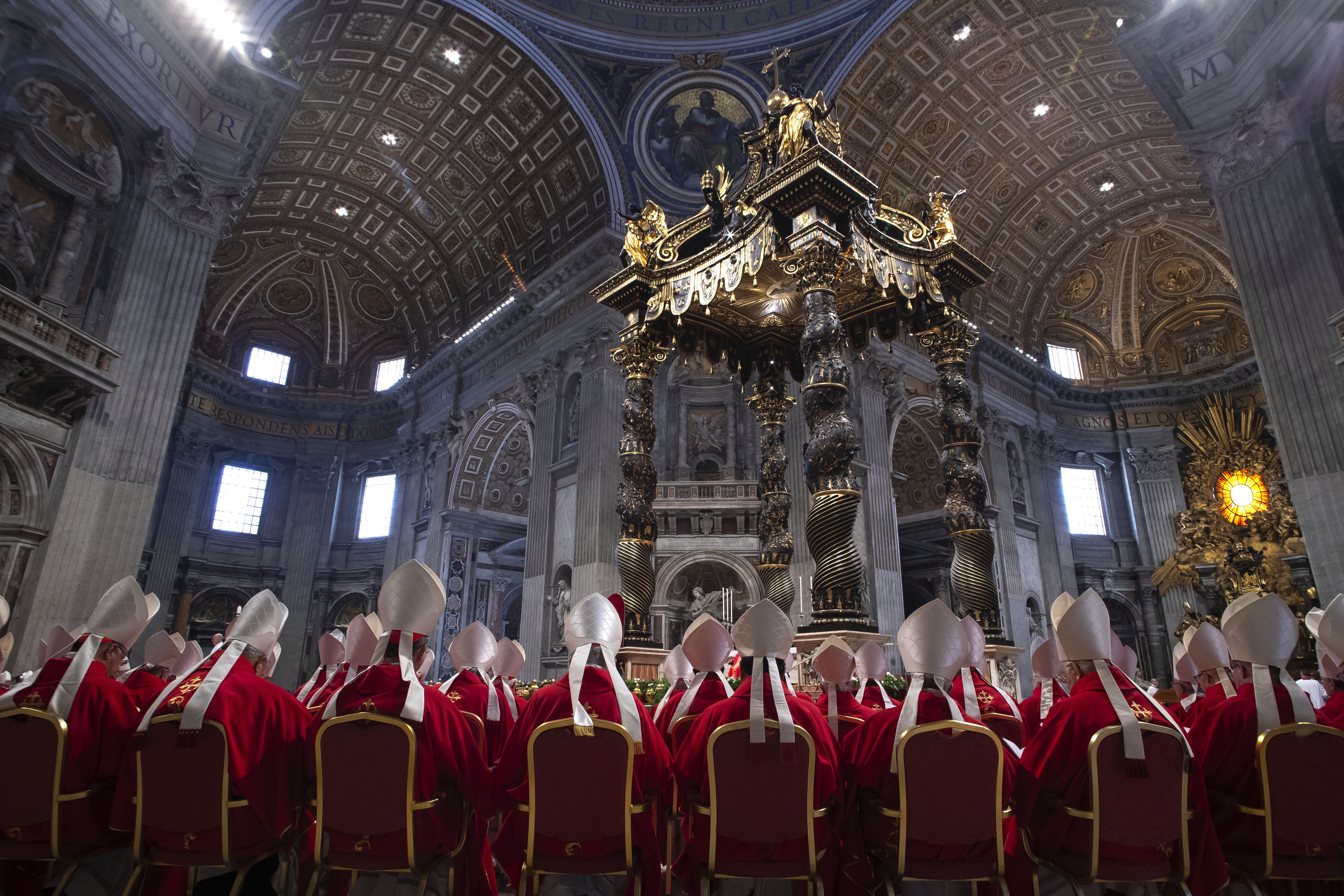Papal Conclave: How the Next Pope Is Chosen - Explained!
Papal Conclave: Unveiling the Secrets of Electing the Next Pope
Introduction: A World Awaits a New Shepherd
The world holds its breath. News of a Pope's passing, or perhaps a rare resignation, sends ripples across the globe. But what happens next? Who decides who will lead over a billion Catholics? The answer lies within the ancient and mysterious process known as the Papal Conclave. It's a tradition steeped in history, shrouded in secrecy, and pivotal to the future of the Catholic Church. This article will delve into the intricate details of a Papal Conclave, shedding light on how the next Pope is chosen, from the solemn rites to the political undercurrents.
What Exactly *Is* a Papal Conclave?
Imagine a locked room, filled with the most influential figures in the Catholic Church. That's essentially what a Conclave is. Derived from the Latin "cum clave," meaning "with a key," it signifies the cardinals' seclusion, their commitment to choosing a new Pope free from outside interference. The Conclave is the formal gathering of the College of Cardinals convened to elect a new Bishop of Rome, otherwise known as the Pope. Think of it as the ultimate job interview, but with eternal consequences.
The Need for Secrecy
Why all the secrecy, you might ask? Well, historically, papal elections have been marred by political maneuvering and external pressures. Kings, emperors, and even powerful families attempted to influence the outcome. The Conclave's seclusion, enforced by strict rules and oaths of silence, aims to prevent such interference and ensure a free and fair election.
The Interregnum: A Period of Transition
Before the Conclave can even begin, there's a period called the "Interregnum," a time of mourning and preparation. This period, also known as the "Sede Vacante" (vacant see), officially starts the moment the Pope dies or resigns.
Key Activities During the Interregnum
- Confirming the Death: The Cardinal Camerlengo (chamberlain) officially confirms the Pope's death, traditionally by gently tapping his forehead three times with a silver hammer and calling out his baptismal name.
- Sealing the Papal Apartments: The Papal Apartments are sealed to prevent unauthorized access.
- Funeral Arrangements: Preparations are made for the Pope's funeral, a significant event attended by dignitaries from around the world.
- Governing the Church: The College of Cardinals governs the Church in the interim, addressing urgent matters but refraining from making significant policy changes.
- Preparing for the Conclave: Logistics for the Conclave are finalized, including preparing the Sistine Chapel and ensuring the cardinals' lodging.
Who Are the Electors? The College of Cardinals
The power to elect a new Pope rests solely with the College of Cardinals. But not just *any* Cardinal. There are rules about who gets to participate.
Age Restrictions
Only Cardinals under the age of 80 on the day the See becomes vacant are eligible to vote in the Conclave. This age restriction, introduced by Pope Paul VI and later reaffirmed by Pope John Paul II, aims to ensure that the electors possess the physical and mental capacity to handle the demands of the election process. It also ensures that the electorate more closely reflects the needs of the current church.
The Cardinal's Responsibilities
Cardinals are appointed by the Pope, and their primary duty is to advise him on matters of Church governance. When a Pope dies or resigns, their responsibility shifts to electing his successor. It's a grave responsibility, and they take it very seriously. They're essentially the Church's electoral college.
The Venue: The Sistine Chapel
The Sistine Chapel, with its breathtaking frescoes by Michelangelo, serves as the traditional and iconic venue for the Papal Conclave. Think of it as the ultimate voting booth – but one adorned with some of the greatest art ever created. Its beauty serves as a constant reminder of the spiritual significance of the task at hand.
Why the Sistine Chapel?
The Sistine Chapel provides a secure and relatively neutral space for the cardinals to deliberate and vote. Its historical significance and artistic grandeur also contribute to the solemnity and spiritual atmosphere of the Conclave.
The Process: From Arrival to Announcement
The Papal Conclave follows a strict and time-honored procedure, designed to ensure a fair and impartial election.
Entering the Conclave
On the designated day, the Cardinal electors gather in St. Peter's Basilica for a solemn Mass. Following the Mass, they process to the Sistine Chapel, chanting the Litany of the Saints. Once inside, the doors are locked, symbolizing their seclusion from the outside world.
Oath of Secrecy
Each Cardinal takes an oath to maintain absolute secrecy regarding the Conclave's proceedings. This oath is crucial to preventing leaks and ensuring that the election is conducted without undue influence. Violating the oath can result in excommunication.
Voting Procedures
The voting process is carefully structured to ensure fairness and transparency.
Ballot Preparation
Each Cardinal receives a ballot paper on which to write the name of their preferred candidate. They write the name in a disguised handwriting to maintain anonymity.
The Balloting Process
Cardinals approach the altar, one by one, holding their folded ballots. They kneel in prayer, then place their ballot on a paten (a small dish). Lifting the paten, they pour the ballot into a chalice, declaring, "I call Christ the Lord to witness, who will judge me, that my vote is given to the one who before God I think should be elected." This adds solemnity to the process.
Counting the Ballots
After all the ballots have been cast, they are counted by scrutineers (cardinals chosen by lot). The first scrutineer unfolds each ballot and silently reads the name. The second scrutineer records the names, and the third verifies the recording.
Achieving a Quorum: The Magic Number
To be elected Pope, a candidate must receive a two-thirds majority of the votes cast. If no candidate achieves this majority in the initial rounds of voting, the process continues until a Pope is elected.
Smoke Signals: Communicating the Outcome
One of the most iconic and recognizable aspects of the Papal Conclave is the use of smoke signals to communicate the outcome of each ballot.
Black Smoke: No Pope Yet!
If no candidate receives the required two-thirds majority, the ballots are burned along with chemical additives that produce black smoke. This signals to the world that the cardinals have not yet reached a decision.
White Smoke: *Habemus Papam!* We Have a Pope!
When a candidate receives the necessary two-thirds majority, the ballots are burned with chemical additives that produce white smoke. This signals the successful election of a new Pope. The iconic white smoke is a moment of immense joy and anticipation for Catholics worldwide.
Acceptance and Proclamation
Once a candidate is elected, they are asked by the Cardinal Dean (or the senior Cardinal elector if the Dean is ineligible) if they accept the election. If they accept, they are then asked what name they will take as Pope.
The *Habemus Papam* Announcement
Following the acceptance and naming, the Cardinal Protodeacon (the senior Cardinal Deacon) emerges onto the balcony of St. Peter's Basilica and proclaims "Habemus Papam!" (We have a Pope!), followed by the new Pope's chosen name.
The New Pope's First Appearance
The new Pope then appears on the balcony to greet the crowds gathered in St. Peter's Square and to impart his first blessing, the *Urbi et Orbi* (to the city and the world).
Potential Challenges and Controversies
While the Papal Conclave is designed to be a fair and transparent process, it is not without its potential challenges and controversies.
Political Considerations
Despite the emphasis on spiritual discernment, political considerations can sometimes play a role in the election process. Different factions within the College of Cardinals may support different candidates, leading to complex negotiations and compromises.
External Pressures
Although the Conclave is secluded, external pressures can still exert an influence, whether through media coverage, public opinion, or behind-the-scenes lobbying by various groups.
The Future of the Papal Conclave
The Papal Conclave is a living tradition that has evolved over centuries. While the fundamental principles remain the same, there have been adjustments to the rules and procedures to address contemporary challenges.
Potential Reforms
In recent years, there have been discussions about potential reforms to the Conclave process, such as exploring alternative methods of voting or further strengthening the rules on secrecy. However, any changes would need to be carefully considered to ensure that they do not undermine the integrity and legitimacy of the election.
Conclusion: A Ceremony of Faith and Tradition
The Papal Conclave is more than just an election; it's a profound spiritual event steeped in history and tradition. It's a reminder of the enduring power of the Catholic Church and its commitment to choosing a leader who will guide its followers in faith and service. From the solemn rituals to the symbolic smoke signals, the Conclave is a unique and captivating spectacle that captures the world's attention. Understanding this process is key to understanding the future direction of the Church and its role in the world.
Frequently Asked Questions
Here are some frequently asked questions about the Papal Conclave:
-
Q: How long does a Papal Conclave typically last?
A: There's no set time limit. Historically, some have lasted days, even weeks. Nowadays, with more streamlined processes, they typically conclude within a few days.
-
Q: What happens if the Cardinals are deadlocked and can't reach a decision?
A: While unusual, the rules allow for a "deadlock breaker." After a certain number of inconclusive ballots, the Cardinals can opt to choose between the two candidates who received the most votes in the previous ballot. This is done to prevent prolonged stalemates.
-
Q: Can a Cardinal vote for himself?
A: Yes, a Cardinal can vote for himself. There are no rules prohibiting it.
-
Q: Is it possible for a Pope to be elected who is not a Cardinal?
A: Technically, yes, any baptized Catholic male is eligible to be elected Pope. However, since 1389, every Pope elected has been a Cardinal. If a non-Cardinal were elected, he would need to be ordained as a bishop before assuming the papacy.
-
Q: What happens to the old ballots after the election?
A: All the ballots and any notes taken during the Conclave are burned after the election is complete. This ensures complete confidentiality and prevents any potential future disputes or interpretations of the voting process.

